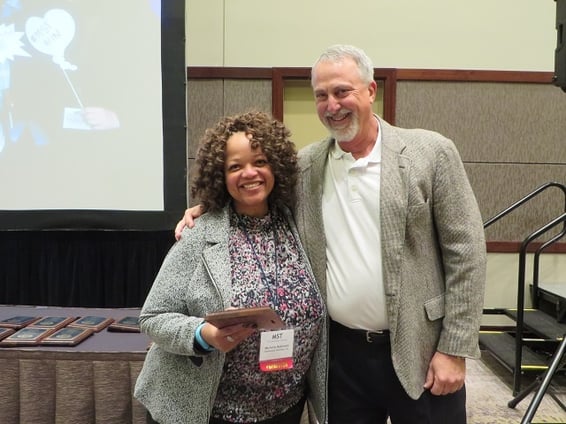
Where can I send my troubled child? Why parents should be asking a different question to help their teens and adolescents
"Where can I send my troubled child?"

"Where can I send my troubled child?"
Topics: Troubled Youth

There are troubled youth everywhere. Big cities. Little towns. Halmstad, Sweden.
Halmstad is a port city on the country’s west coast with a population of more than 90,000. And as is the case in so many places worldwide, there is a drug problem among adolescents. How is the city dealing with it? One way is through collaboration between police Officer Thomas Turesson and the Halmstad Multisystemic Therapy (MST) team.
Topics: Troubled Youth
Posted by Beth Liddle
Sean* was referred to Multisystemic Therapy (MST) Edinburgh by his social worker in July 2017. He was being reported missing to police as frequently as every day. He was using drugs, offending in the community and would often smash up property within the home. Sean’s mother, Ms. Spencer*, described the family as being in a “desperate situation.” She believed that having her son taken into Local Authority care was her only option. She said, “I couldn’t cope. My whole family was stressed, and it all became unbearable. I had to resign from my job as I was calling in sick continuously due to Sean’s behaviour. It was impossible to manage.”
Topics: Troubled Youth
It’s back to school season—from shopping for supplies to the sounds of early morning buses. For many young people, this can be a happy time of year, a time when they will start fresh or rejoin old classmates or re-connect with teachers. For some, the sights and sounds of crowded hallways bring a sense of excitement. But many youth—and families—do not have the same joyful anticipation. Many students and parents have lumps in their throats or experience anxiety when they think about returning to school and the concerns it brings—bullying, truancy, suspensions or exclusions, the dreaded phone call from school when a problem arises and the potential that things may escalate to involvement with child-protective services or the juvenile-justice system.
Topics: Troubled Youth
Posted by Laurie Spivey
Labels. Labels we are given, and ones we take on and allow to define us. For young people who are involved in juvenile justice, and for many who become MST clients, labels can get in the way of success. Maybe they are marked as “bad kids” because they are on probation or parole. Maybe it’s a mental health diagnosis or a learning disability that is allowed to become their label. Some kids are remembered for a crime they committed or by the reputation their families have in the community. Thankfully, we don’t live in the 17th century and have to literally wear a scarlet letter stitched across our clothing. Being put into a category can still be incredibly damaging and difficult to overcome. In particular, when we internalize it.
Topics: Troubled Youth
Two years ago, CSI's (Community Solutions Inc.) New Jersey Multisystemic Therapy (MST) teams were struggling. Retaining staff and achieving positive outcomes for families was proving to be very difficult. Everyone was invested—they were just unsure if MST could work in their neighborhoods. The communities were experiencing high levels of violence, and families were increasingly losing hope. The program manager of the New Jersey teams wasn’t sure if MST alone was a viable treatment option given everything that was happening in the area. The program leadership wondered whether therapists would be safe when they went to see families. Could they successfully engage people who had strong distrust of professionals? Could they help families rearrange their ecologies so that young people did not get rearrested during the course of MST? Could they work to get young people back to school?

Michelle Robinson receiving her WIT award at the 2017 International Conference pictured alongside Scott Henggeler
Topics: Troubled Youth
“Why aren’t you working with my child? He’s the one who got in trouble and is causing all the problems, not me!”
“I heard MST never does individual treatment with the individual offender. Is that true?”
Because Multisystemic Therapy (MST) draws the whole family and community into the treatment, some people think the teen with the unacceptable behavior gets no individual attention. Nothing could be further from the truth.
To answer those questions, you have to understand the treatment, its principles and processes.
Topics: Troubled Youth
In Connecticut, you might say that these are the best of times and the worst of times. At the end of the last fiscal year, the state budget crisis prompted the layoff of dozens of probation officers, consolidation of several courts, elimination of some contracted services and a whopping, across-the-board, 6.9-percent budget reduction to all remaining juvenile services. What’s worse, additional cuts may be required as the current fiscal year closes.
However, in what is broadly considered a victory for children, the governor recently called for the closure of the state’s only secure facility for sentenced youth, the Connecticut Juvenile Training School (CJTS).
Topics: Troubled Youth
It's not uncommon for an overwhelmed parent to say, “I need to send him [or her] someplace else.” Whether a young person is running away, refusing to attend school, using drugs or is involved in crime, many parents come to believe military-style boot camps or wilderness programs are the only options left. Heavily marketed and popularized in the 1990s, some parents see boot camps as the way to send a clear message to their kids that their behavior will no longer be tolerated.
But is a boot camp or wilderness program really the most effective way to handle a teen’s unacceptable behavior? There may be more effective alternatives.
Topics: Troubled Youth
In the world of public and school policy to deal with adolescents who engage in antisocial behavior (delinquency, substance abuse) one area that seldom receives the attention it deserves is the side effects of commonly used prevention and intervention strategies.
Topics: Troubled Youth
3500 Piedmont Rd NE
Suite 310
Atlanta, GA 30305